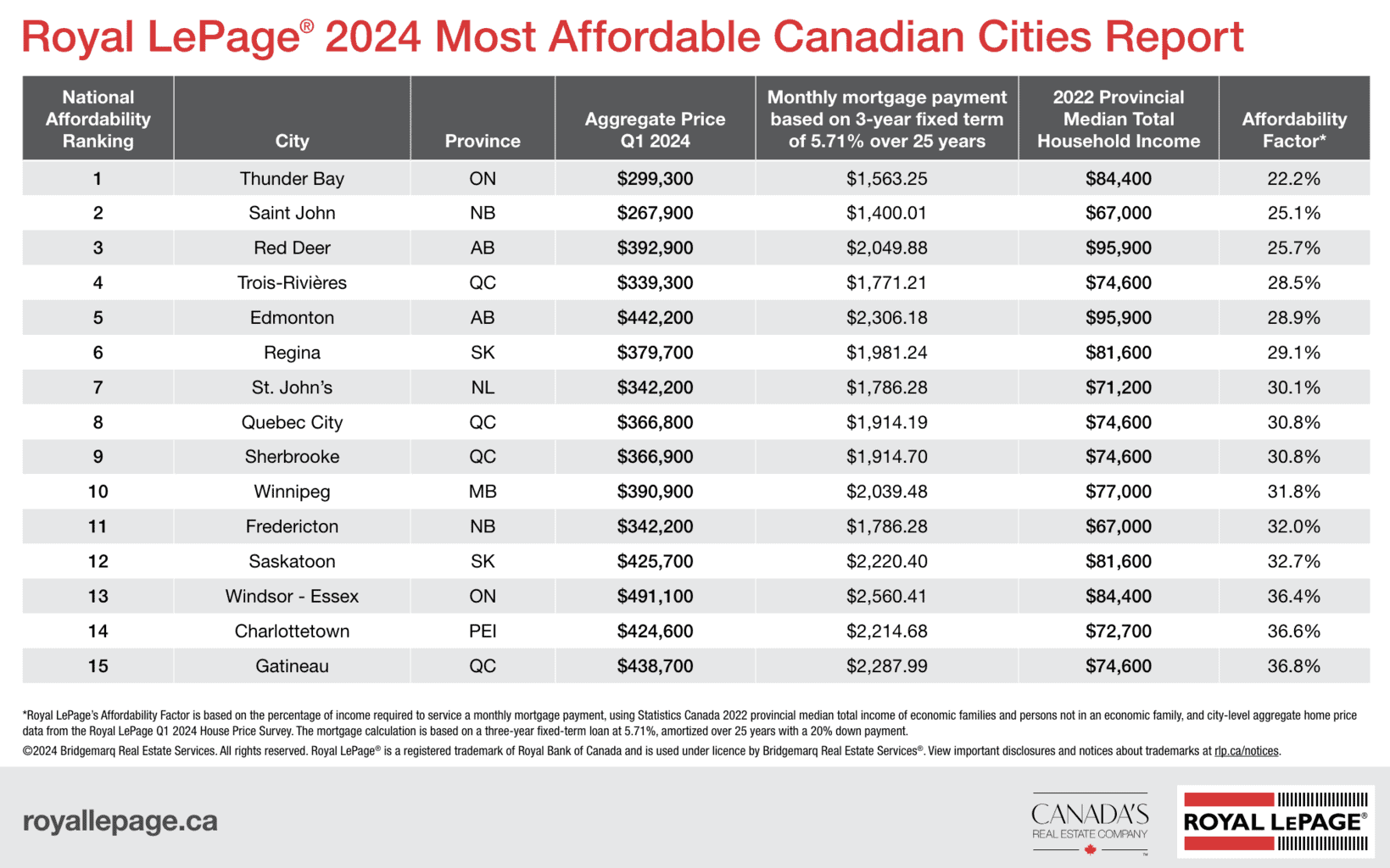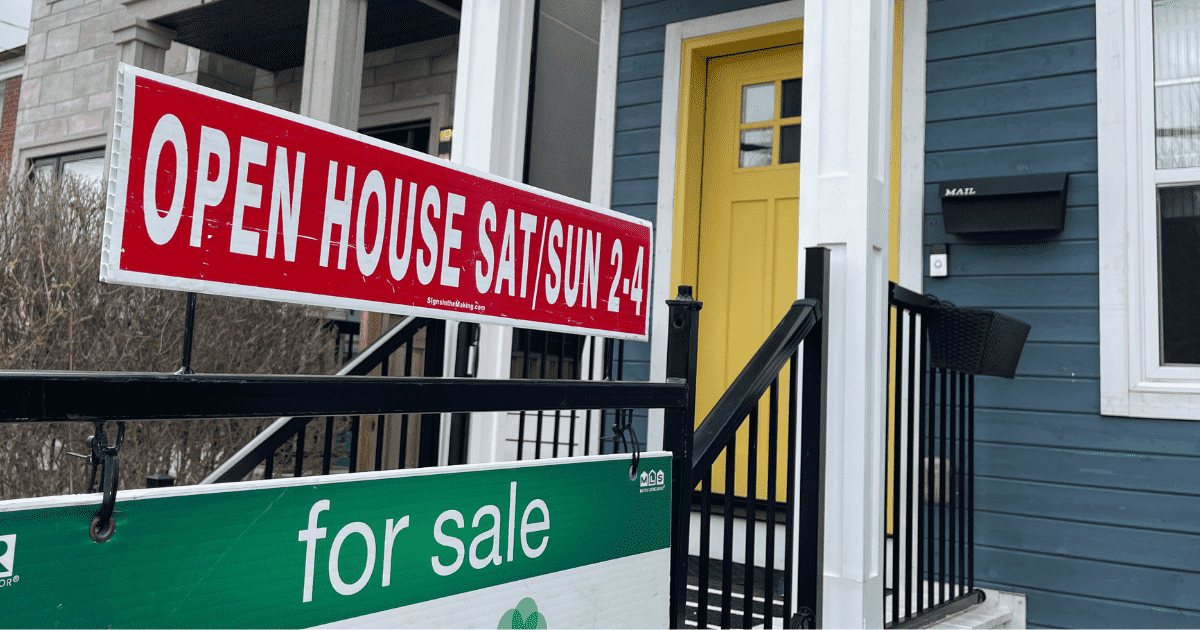Canada’s most affordable cities
As for the city that tops Canada’s most affordable list, it’s Thunder Bay, Ontario. There, 22.2 per cent of a household’s monthly income is needed to service a mortgage payment. The rest of the top five include Saint John, Red Deer, Trois-Rivières and Edmonton, where between 25.1 and 28.9 per cent of a household’s monthly income is needed to service a mortgage payment.
“Many aspiring homeowners in the country’s largest and priciest urban centres are seriously considering relocating to less expensive cities in order to get a foot on the property ladder,” says Karen Yolevski, COO, Royal LePage Real Estate Services Ltd.
“Compared to existing homeowners who have already set down roots, we know that renters are more likely to move to be able to afford a home. This flexibility is supported by the post-pandemic permanence of remote work opportunities, which continues to allow workers in many sectors to seek out housing that is within their budget, without worrying about proximity to their office,” she adds. “In today’s higher borrowing cost environment, where the price of everyday goods has increased in tandem with interest rates, homebuyers are considering buying a home in a more affordable community.”
The survey found that Quebec City is the most popular relocation destination among residents of the Greater Montreal Area, as 29 per cent of those respondents say they’d consider buying a home in Quebec City if they could find a job or work remotely.
Edmonton is the top pick among GTA and Greater Vancouver respondents, with 19 per cent in both cities choosing it.

Reasons to move
57 per cent of respondents who say they’d consider relocating to a more affordable city stated a lower cost of living as another incentive to do so. 41 per cent say they want to be closer to nature and live in a less populated area, while 40 per cent wish for a more relaxed pace of life.
“It’s clear that lifestyle is an important factor in Canadians’ decisions about where to buy a home,” Yolevski notes.
“Unsurprisingly, in addition to lower home prices, some Canadians who are contemplating a move to a more affordable city are also seeking reduced everyday expenses and a break from the hustle and bustle of urban centres. This is a trend that began prior to the pandemic and was accelerated during the real estate boom of 2020 and 2021 when many homebuyers relocated to smaller communities where they could safely social distance whilst enjoying greater privacy, more living space and better access to the outdoors.”
The flip side
On the other hand, 40 per cent of respondents from the country’s largest urban centres would not move to one of Canada’s most affordable cities (this includes 47 per cent of homeowners and 30 per cent of renters).
“Canada’s largest cities have much to offer, from diverse employment opportunities to endless entertainment options and amenities. Around the world, people continue to gravitate to major cities and the lifestyle they provide. Regardless of how many residents choose to relocate elsewhere, there will always be a strong demand for housing in the cities of Toronto, Montreal and Vancouver, both from locals and newcomers,” Yolevski explains.
She points out, though, that the imbalance of supply and demand presents a big challenge to those trying to access these markets, which “underscor(es) the crucial need to build more homes faster in markets of all sizes.”
Review the full report here.













